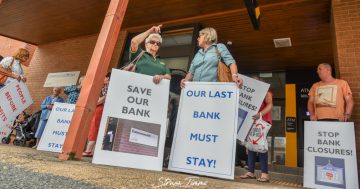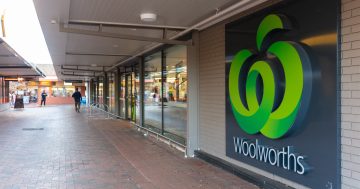Elysse Morgan* says Australians have more money invested in bank stocks than any other stocks, either directly or indirectly, but leading bank analysts suggest a rethink on whether that is the best place to have your money parked.
 Jefferies’ Brian Johnson likens the Australian economy, and by proxy the banks, to Corbet’s Couloir — one of the most dangerous ski runs in North America.
Jefferies’ Brian Johnson likens the Australian economy, and by proxy the banks, to Corbet’s Couloir — one of the most dangerous ski runs in North America.
It’s a double black diamond, which means one who dares enter will be exposed to “uncontrollable falls along a steep, continuous pitch, route complexity, and high-consequence terrain”.
With such tricky path ahead, does the average skier want to hold bank stocks through that?
Mr Johnson says Australia has avoided going off the so-called economic cliff in September, but believes it is still on a dangerous slope — and so are the banks.
“If you believe there is a V-shaped economic recovery, I think you’re being incredibly optimistic and you’d probably be buying all the banks,” he told The Business.
“If you believe there is an 18-month U recovery, which is my scenario, then you wouldn’t be buying but if you were, it would probably be NAB.
“If you think there is an L-shape recession risk, and that seems to be the growing risk by the day, without more government stimulus, you would not be buying Australian banks stocks yet.”
Bank stocks have rallied off the lows plumbed in March, but not as much as the rest of the market.
The share price for NAB, ANZ and Westpac are all still around 40 per cent below the peaks hit in February this year.
Commonwealth Bank has clawed back more ground and is down around 20 per cent.
The worst is yet to come
But this, Mr Johnson says, doesn’t mean it’s time to rush in.
He is worried the worst for the banks is yet to come, starting from October with the withdrawal of billions of dollars of government stimulus.
The reduction of the JobKeeper payment from the beginning of October will mean the amount of cash the Federal Government is pumping into households and businesses will go from $14 billion a month to just under $3 billion.
That coincides with the winding back of loan repayment moratoriums, rent and eviction moratoriums and an expected increase in unemployment until at least Christmas.
“You wouldn’t call it a fiscal cliff anymore but it certainly looks to be a very challenging environment, so we won’t know how bad things are until sometime after September,” Mr Johnson told the program.
So if that’s the outlook — what will happen to bank stocks?
“As long as you have got earnings expectations declining, the risk of no dividend, all of these economic risks, it wouldn’t surprise me if you saw them track back down to the lows that they were [in March].”
Mr Johnson says the recent earnings reports from the banks show they are challenged on nearly all fronts.
“Credit growth is slow and it is not that that the banks don’t want to lend, it’s borrowers not wanting to borrow,” he said.
“Net interest margins are falling because of very strong levels of competition on interest rates. Customers moving from credit cards to debit means fees fall.
“The one bright spot is that revenues from share trading were well up, but you would think that is a very short-term effect.”
Another drag on the bank’s bottom lines is provisioning, or how much cash they have to put aside for loans going bad, and Mr Johnson is one of many analysts worried not enough has been put aside so far.
“ANZ has 0.47 per cent provisioning for every $100 of home loans, the other banks all around 0.6 per cent … if we were to look back to 1992, the last time we had a recession, we’re talking about loan losses that are significantly higher on that,” he said.
“Which means we probably have more provisioning charges going forward. You add all of that up and prospects are down, is the way I would see it.”
It is not good news for the millions of Australians who rely on bank dividends for income.
“A bit of dividend yield? That sounds great, but there are lots of places where you can get that,” Mr Johnson said.
This month, Commonwealth Bank reported an 11 per cent fall in full-year earnings and cut its dividend by 31 per cent.
Earnings for ANZ, NAB and Westpac all retreated in the third quarter and NAB and ANZ cut their interim dividends by 70 per cent while Westpac cancelled it altogether.
“If you are going to have a bad year, you should make it even a shocking year. It’s plausible that you don’t see a dividend from Westpac this year,” he said.
*Elysse Morgan hosts The Business on ABC TV and ABC NEWS Channel. She can be contacted on Twitter @ElysseMorgan
This article first appeared at abc.net.au











